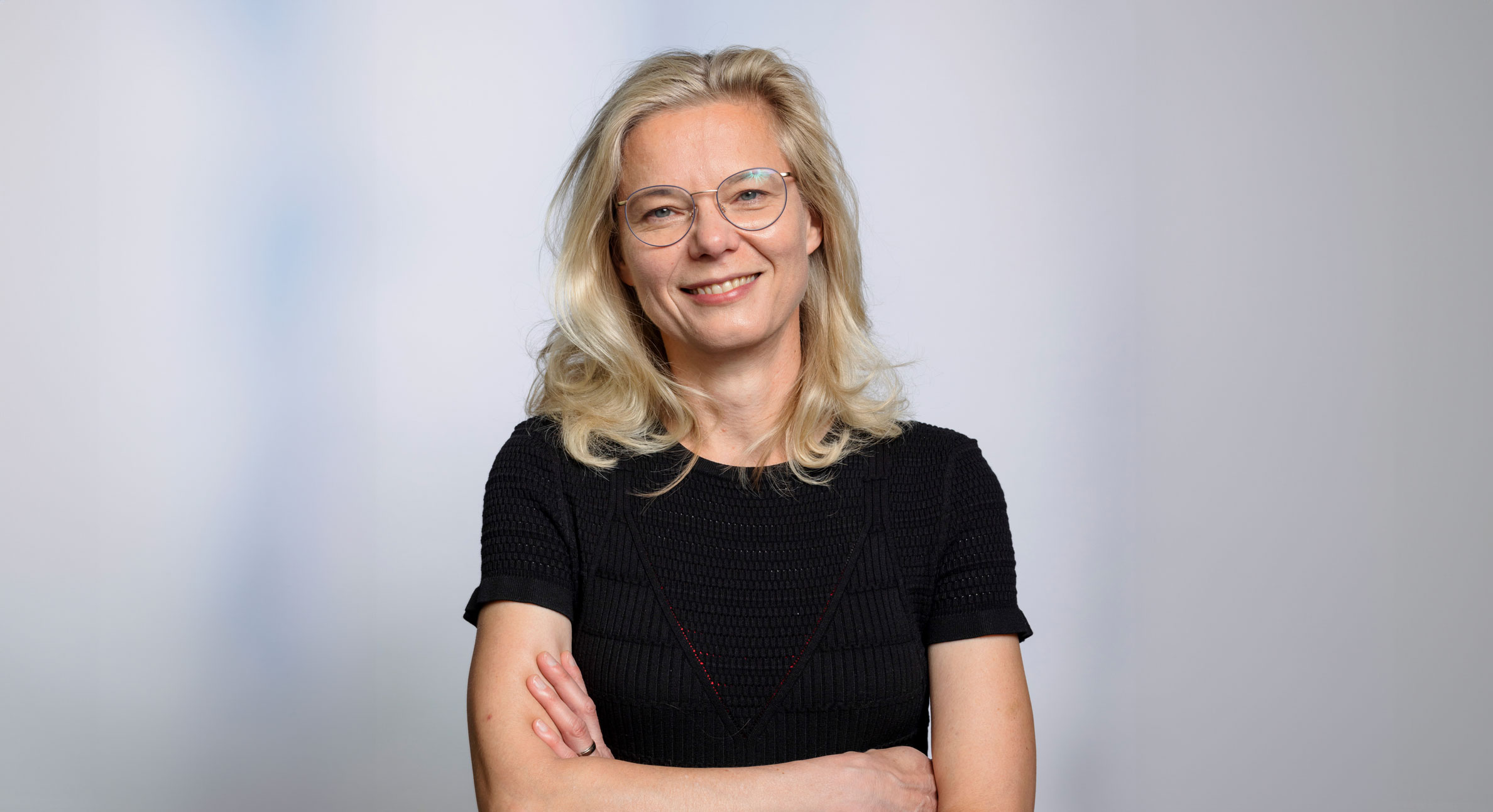Professor Antje Körner from Helmholtz Munich and the University of Leipzig has been named as the 2024 recipient of the Obesity Prize for Excellence, established in January 2023 by the European Association for the Study of Obesity (EASO) and the Novo Nordisk Foundation. The prize includes a DKK 2 million award, with DKK 300,000 designated as a personal award and DKK 1.7 million allocated for research. At the same time, four other researchers receive the New Investigator Award for promising research in the field of obesity.
The EASO-Novo Nordisk Foundation Obesity Prize for Excellence recognizes outstanding research or technology contributions which improve the understanding of obesity, its aetiology, complications, prevention, and management. This year the prize has been awarded to Professor Antje Körner, Head of the Metabolism Division at the Helmholtz Institute of Metabolic, Obesity and Vascular Research (HI-MAG) at Helmholtz Munich and Professor for Metabolic Research at the University of Leipzig in Germany.
“We are excited that Professor Körner has been awarded this prestigious prize. Her groundbreaking research that has significantly contributed to the understanding of the origin and consequences of childhood obesity is truly inspiring for the obesity field,” says Arne Astrup, MD, Professor and Senior Vice President, Obesity and Nutritional Sciences, Novo Nordisk Foundation.
“Professor Körner’s research has been instrumental in the characterization of adipose tissue function and distribution in children with obesity and the identification of biomarkers for obesity-related complications. She has also played a key role in understanding the genetic and epigenetic factors that contribute to paediatric obesity and is a strong advocate for the translation of scientific research into clinical practice in order to address the paediatric obesity burden at a national and international level.”
In addition to the Obesity Prize for Excellence, the EASO and Novo Nordisk Foundation have also awarded four New Investigator Awards, each of which includes a research grant of DKK 300,000.
“Congratulations to the Obesity Prize for Excellence and New Investigator Award winners announced today. We are delighted to continue our partnership with the Novo Nordisk Foundation in supporting these research grants which are focused on groundbreaking advancements in obesity. We eagerly anticipate hearing the winners’ presentations and participating in their official recognition sessions during the upcoming European Congress on Obesity,” says EASO President, Professor Jason Halford.
Understanding and combating obesity in children
Professor Körner’s interest in obesity began while she was in medical school. Today, she combines her role as a practicing paediatric endocrinologist with research to better understand the origin, mechanisms and consequences of childhood obesity.
“When I started out, obesity was seen as a failure to adopt a healthy lifestyle. Now we know that there are genetic predispositions and environmental risk factors that drive obesity,” Professor Körner explains. “However, children are not benefiting from scientific and clinical advances in this field. It is my personal goal to change this.”
With her clinical background, Professor Körner uses a translational and holistic approach in her research, which combines cell biology, molecular biology, clinical, and genetic studies to look into the trajectories and co-morbidities of obesity.
“My ambition is to address obesity in children by gaining greater insight into its epidemiological and clinical associations, underlying mechanisms – with a particular focus on alterations in adipose tissue – and the functional relevance of genetic and environmental risk factors. Based on the better understanding of these interactions we aim to identify actionable prevention and treatment targets plus provide evidence for better treatment response if these measures are initiated early, already in childhood,” says Professor Körner.
A window of opportunity
Professor Körner’s research has shown that early childhood is a critical time for the development of sustained obesity into adulthood. “The factors that contribute to obesity development start to act very early in life. And while the co-morbidities of obesity are usually diagnosed in adulthood, their development begins in childhood. We therefore have a window of opportunity to interfere with the development of obesity and metabolic complications in children as their metabolic systems are still developing.”
With the Prize grant, Professor Körner plans to investigate how to identify children at greatest risk of early metabolic deterioration and development of obesity, and provide scientific evidence of the sustained benefit of early intervention and initiation of treatment in these children.
“Children provide a unique opportunity for us to identify the earliest biological and environmental risk factors for obesity,” she explains. “Once we have identified children at highest risk, our research will look at whether we can prevent or slow the progression of obesity and its comorbidities with intelligent intervention – using innovative pharmacological treatment combined with a psychological therapeutic approach. We also hope to identify predictors of treatment response in children and potentially modifiable factors that protect from obesity.”
While the Prize grant will support Professor Körner’s research programme for the next three years, she also hopes the award will help increase visibility of childhood obesity: “Children are very important to me. It is vital that we fight the stigma and raise awareness that obesity is a disease. We must ensure children are included on national and international research agendas and overcome the treatment gap between adults and children.”
Four researchers receive New Investigator Awards
Basic Science — Birgitta van der Kolk, a postdoctoral fellow at the University of Helsinki in Finland, has shed new light on obesity and weight loss mechanisms through her multidisciplinary research on tissue-specific insulin resistance phenotypes and mitochondrial metabolism in adipose tissue and skeletal muscle. Her goal is to advance the development of science-based treatments for obesity by identifying molecular pathways that affect whole-body physiology in successful weight loss and in obesity in an aging population.
Childhood Obesity — Andrew Agbaje MD, MPH, PhD, FESC, a Pediatric Clinical Epidemiologist and Principal Investigator of “urFIT-child” research group, University of Eastern Finland (Finland) & University of Exeter (UK) is receiving the Award for discovering arterial stiffness as a novel risk factor for pediatric obesity and insulin resistance, identifying critical time to interrupt fat mass-insulin resistance pathologic cycle, and demonstrating light-intensity physical activity as a highly effective antidote for reversing excessive fat deposit induced by childhood sedentariness.
Clinical Research — Borja Martinez Tellez, Tenure Track Researcher at the University of Almeria and Torrecardenas University Hospital in Spain, is being recognized for his pioneering research on the role of brown adipose tissue (BAT) in human metabolism. His ongoing investigations explore the potential presence of previously unidentified BAT depots in women and examine the effects of innovative interventions like exercise or B2 agonists on enhancing BAT thermogenesis. The potential revelation of a new BAT depot and its function in women suggests the possible development of tailored treatments for patients with obesity.
Public Health — Laura Gray, research fellow at the University of Sheffield, United Kingdom, has conducted extensive research on obesity and population health. She has a particular interest in obesity across the life course and has led research on childhood obesity and obesity in older adults as well as analysing trends in obesity across time, with age and within birth cohorts.
All prizes and awards will be officially presented at the 30th European Congress on Obesity (#ECO2024), 12-15 May 2024, where attendees will have an opportunity to hear an award lecture from the Prize for Excellence winner and presentations from each New Investigator Award winner. Registration is available here.
For more information on the entry criteria and application process for the Obesity Prize for Excellence and New Investigator Awards, see here.
Obesity: a growing epidemic
Obesity is a chronic and complex condition that impacts health and can lead to increased risk of diabetes, heart disease and certain cancers.1 Obesity is responsible for an estimated five million deaths worldwide each year.
Currently more than 890 million adults are living with obesity, corresponding to 1 in 8 people in the world – a figure which has more than doubled since 1990.
The prevalence of obesity is also rising in children: 2% of children aged 5–19 years old were living with obesity in 1990, with this figure quadrupling to 8%, or 160 million, by 2022.
About EASO
EASO represents the European Obesity Community. The leading voice of obesity science, medicine and community in Europe, EASO represents scientists, obesity specialists, physicians, health care practitioners, and public health practitioners. Established in 1986, EASO is a federation of professional membership associations across 36 countries.









